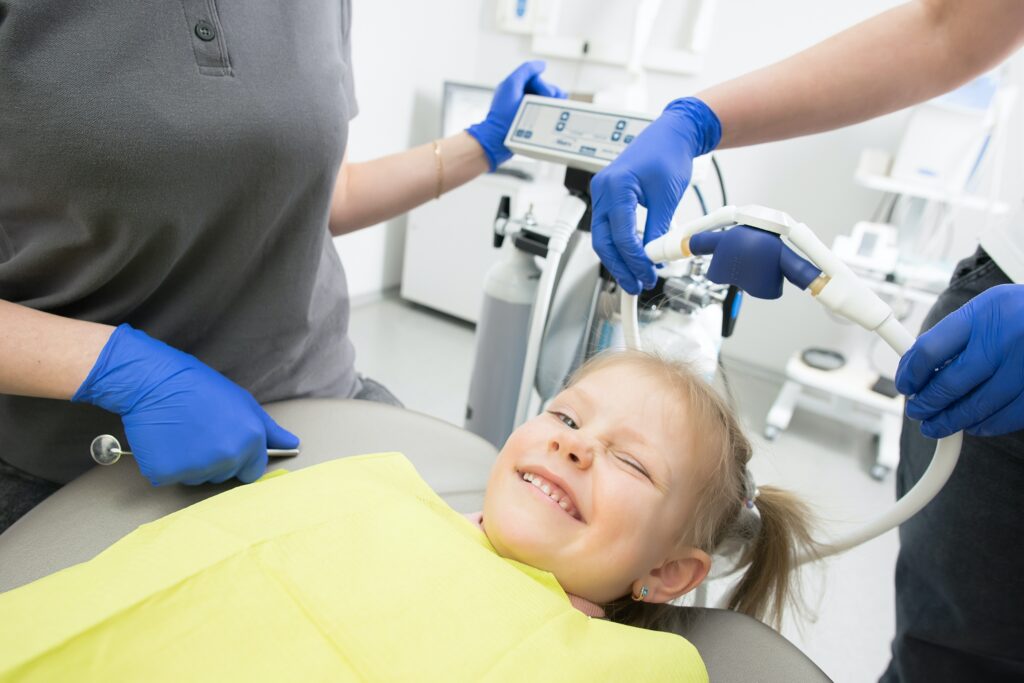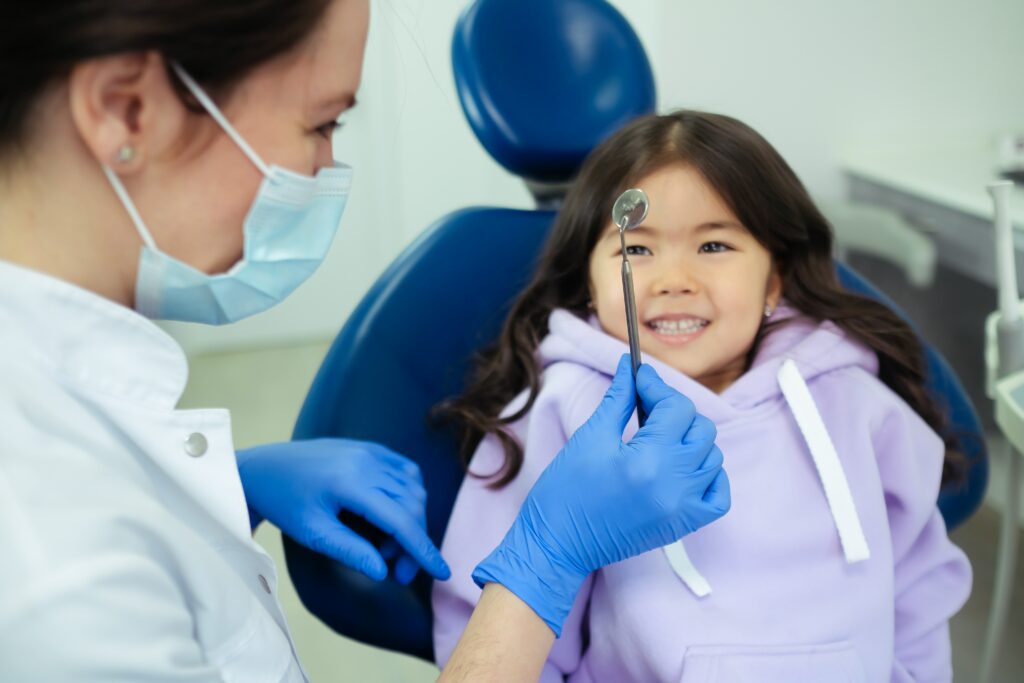
What to Expect at a Child’s Dental Exam
No matter how you feel about them, dental exams are vital for maintaining a healthy mouth. They’re especially important for young children, to ensure their teeth and gums are developing properly. Regular dental exams can also help prevent cavities, which affect 42% of children between the ages of two and 11. As a parent, you have an active role in maintaining your child’s dental health and you should know what to expect at your child’s dental exam.
When should my baby start going to the dentist?
Most pediatric dentists recommend taking your child for a checkup within six months of their first tooth coming in or by 12 months of age. It seems a bit early to worry about your child’s dental care, but a trained pediatric dentist will know exactly what to look for and how to handle your baby to ensure their dental health is off to a good start.
What does a child’s dental exam include?
A child’s dental exam looks different depending on how old the child is. Dental visits for babies and toddlers tend to be shorter than visits for kids six and up, and the dentist will likely look for different things in your kid’s teeth as they get older.
Generally, however, you can expect the following four services from your child’s dentist visit
1. Exam
The dentist will examine the child’s teeth, gums, and jaws to look for tooth decay, gum disease, or other problems. When the child is old enough, your pediatric dentist may also take X-rays to see the root of the teeth as well. At Ashburn Children’s Dentistry, we use digital X-rays because they’re a safer, more effective alternative to traditional X-rays.
2. Cleaning
At a routine dental visit, your child will also get a cleaning to remove plaque and tartar from their teeth. Tartar only comes off using professional dental tools, so it’s important to have these cleanings twice per year.
3. Fluoride
Fluoride makes tooth enamel stronger and can help prevent decay — which helps prevent cavities. A fluoride treatment from your pediatric dentist can give your child’s teeth a boost when fighting off decay. The treatment usually consists of painting fluoride paste on the teeth and letting it sit for a few minutes. Afterward, children should not rinse, eat, or drink for at least 30 minutes. Fluoride treatments can take place every three, six, or 12 months.
4. Sealants
Dental sealants fill in any cracks or gaps between the teeth to keep food particles and bacteria from building up. These sealants can be beneficial for some children, but they’re not necessary for every child. Applying sealants is a quick, simple procedure and your dentist can advise you on whether your child needs them or not.
In addition to these services, the dentist will also give you ways to improve your child’s dental health at home. If you have questions about your child’s dental exam, you can always call a pediatric dentist first and ask what an appointment with them will involve.

What to Expect at a Baby’s Dental Visit
Your baby’s first dental exam not only includes a physical examination of your child’s teeth, gums, and jaws, but is also an informative session for you to learn how to prevent bad dental hygiene habits from setting in at an early age.
Your child’s dentist can give you advice on:
- Proper mouth cleaning
- Feeding best practices
- Teething
- Tooth decay from baby bottles
- Pacifier and finger-sucking habits
How to Prepare for Your Child’s First Dental Appointment
Typically, infants do better in the morning when they’re more alert, so schedule the exam in the morning if possible. Try to act excited about going to the dentist, even if you yourself feel anxious about dental appointments. Toddlers around preschool age will be able to pick up on your emotions, so make it as positive for them as you can.
Be ready to give the dentist an account of your child’s medical history so they’re able to suggest the best treatment plans. For the first visit, the focus will be getting the child comfortable with going to the dentist and learning about their dental hygiene habits at home. A child’s first dental appointment may also include:
- Examination of the teeth, gums, jaws, bite, and oral tissues
- Gentle cleaning if needed
- Demonstration of proper brushing and flossing technique
Young children generally don’t get X-rays of their teeth unless there’s an issue, like a baby tooth blocking an adult tooth from coming in.
How do dentists clean toddler teeth?
If sitting in a dentist’s chair with your mouth open and the bright light shining on you makes you nervous, you may be nervous about subjecting your infant or toddler to the same thing. But pediatric dentists know this and will help your child feel comfortable.
Toddlers aren’t likely to sit still or may feel anxious being separated from their parents for a dental exam, so many pediatric dentists use the knee-to-knee or stool-to-knee methods to examine teeth.
The knee-to-knee dental exam involves you sitting directly across from the dentist, with your knees almost touching (“knee-to-knee”) to form a sort of table for your child. Your child rests their head on the dentist’s lap and their legs on your lap. The dentist then examines your child’s mouth from this angle.
The knee-to-stool method is for older kids and involves your child sitting on a short stool or bench in front of you, so they are directly below you and you can rest your hands on their shoulders. The dentist sits across from you and your child and examines the child’s mouth.
Navigating Your Child’s First Dental Exam
Going to the dentist is nothing to fear — for you or your child. The right dentist will make sure both of you are comfortable, strive to provide you with all the information you need, and show concern for how your child’s dental health fits in with their overall health and development.
At Ashburn Children’s Dentistry, our priority is creating healthy smiles that last a lifetime. With years of experience in pediatric dentistry ranging from infants to adolescents, we’ve helped put many parents’ minds at ease.
If you’re wondering whether it’s time for your child’s first dental exam, give our office a call at (703) 844-3005.